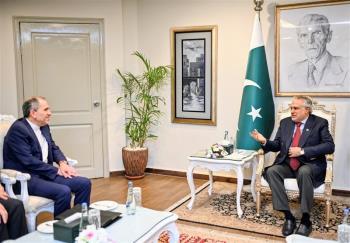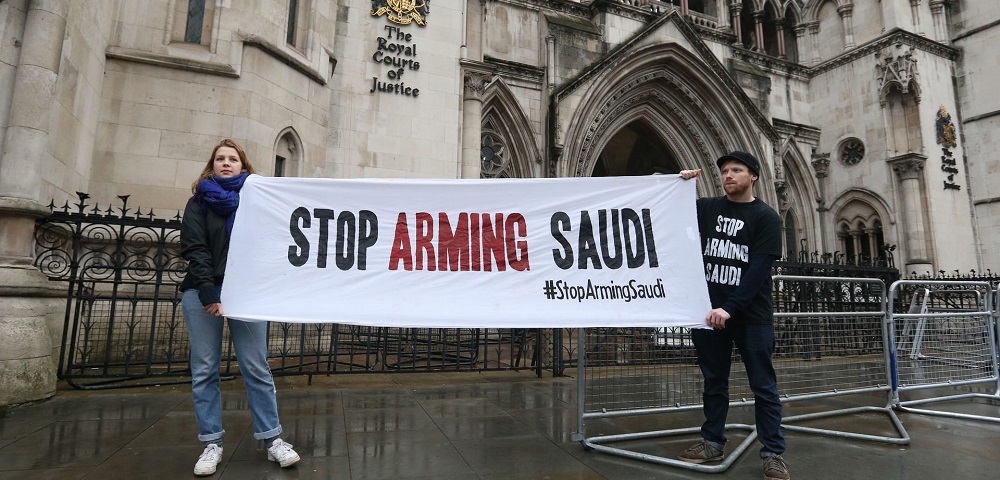Alwaght- During over 30 months of aggression against Yemen so far, Saudi Arabia has largely relied on the Western-supplied weapons to massacre the Muslim nation.
London’s arm supplying to Riyadh has been crucial to the war waged against neighboring Yemen in March 2015. Voices are rising inside Britain calling for the government to stop supplying weapons to the Saudis.
The British rights organizations have called on the British government to cancel the visit of the Saudi Crown Prince, Mohammed Bin Salman, to Britain, which was announced by the Britain’s Prime Minister Theresa May last month.
The call for trip cancellation came in the form of a letter sent to May’s office.
“The Saudi Crown Prince is responsible for the crimes committed in his country against activists, including prison, detention, torture, forced disappearance, and execution,” the rights organizations’ letter read.
“He [Saudi Crown Prince] is also responsible for the serious war crimes in Yemen which claimed the lives of tens of thousands of innocent people, including women and children,” the letter continued.
The letter also carried criticism directed to the British government which is said to have played a role in the conflict for its providing military equipment and weapons to the Saudi regime. The British Weapons provision, the organizations believed, was a major reason behind the escalation of the battle in war-torn Yemen.
Weapons sales to Saudi Arabia Surge
Since the beginning of the war against Yemen three years ago, the British government authorized selling of £3.7 billion ($5.1 billion) worth of arms to Saudi Arabia. The reports suggest that London continues to give green light to weapons deals with the kingdom. According to Arms Control Today, since the outset of Yemen aggression, Britain, the US, and France stood out as the biggest arms providers of Saudi Arabia. The Independent daily in a report in November said that the British arms exports to the oil-wealthy Arab monarchy increased five-fold since the start of the aggression. Within the first and the second year of the devastating war, the Saudi-led Arab military coalition purchased £4.6 billion ($6.3 billion) worth of arms from London. Figures published by the Department of International Trade of Britain say that in the first two years of the conflict, the government issued permission to exports to Saudi Arabia of various types of bombs, missiles, and other military equipment which were valued £33 million ($45 million). This sum saw a 457 percent increase to date, reaching nearly £2 billion. Authorizations for sales of Eurofighter jets to the Saudi military also witnessed a 70 percent rise in a two-year timeframe, reaching £ 2.6 billion ($3.5 billion). The Guardian last year, citing a letter from the British Secretary of State for Defense to the members of the parliament, revealed that the British government from 1986 to 1989 delivered to Saudi Arabia 500 cluster bombs, which are internationally-banned weapons. Documents provided by the international organizations suggest that the cluster bombs were top on the list of effective Saudi weapons used against the Yemeni people.
The rise in the British weapons sales to the Persian Gulf kingdom comes coincident with calls by the human rights and civilian organizations inside and outside Britain asking the government and the parliament to cut the supply of arms to the Saudis.
It appears that since exit from the European Union, also Known as Brexit, London gained more freedom for shoring up its support for Riyadh’s war against Sana’a which so far killed thousands of Yemenis, displaced millions, and heavily destroyed the country’s infrastructure. Before the Brexit, the British government’s unilateral pro-Saudi moves were restricted by EU’s united stance against this war. That is why, after the exit from the 28-member bloc, all of the figures showed a surge in the British military backing and arms sales to the anti-Yemeni aggression.
The EU in December slammed weapons sales to Saudi Arabia by some of its members. The block at the same time imposed a ban on arms dealing with Riyadh. The German newspaper Tagesspiegel in past few days reported that some of the country’s parties such as the United Christian Democratic Party and Social Democratic Party of Germany, which recently reached agreement to form a new coalition government in the country, decided that if such a government is formed in Germany, it will cease exporting arms to countries participating in the war against Yemen.
Prince Mohammed’s London visit goals
The 32-Year-Old Saudi Crown Prince Mohammed bin Salman plans to visit Britain amid plenty of challenges he is grappling with in the West Asia region and at home. Before Britain, he traveled to Russia and the US in quest of helping hands. His London trip will also see him asking all-out British support. Despite the fact that he so far managed to neutralize all of his opponents at home to turn out as the only powerful man of the kingdom, there are risks of outbreak of domestic conflict inside Saudi Arabia, according to the analysts. The Middle East Eye website has highlighted Prince Mohammed’s policies and the growing dispute inside the ruling family and did not rule out the possibility of a deadly power struggle among the royals. The website decided that approval of leadership of bin Salman, which is believed to take place soon, requires regional and international support, along with the necessity of an internal royal consensus. Therefore, bin Salman goes to London to, on the one hand, seek full support of Britain for his ascension of the throne and, on the other hand, secure flow of the British arms to the Saudi Arabian anti-Yemeni campaign.



























